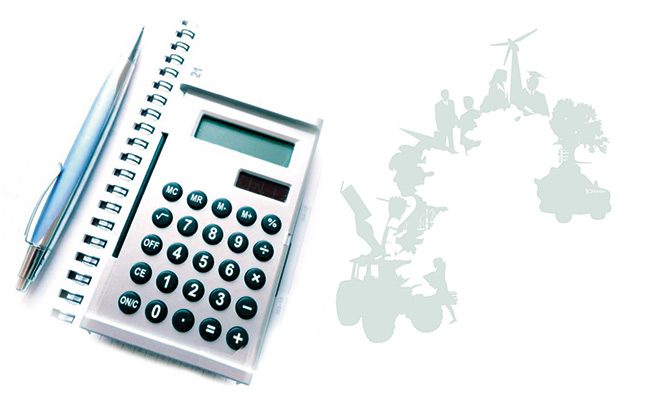1 February 2016 Edition
Delivering a united Ireland for all
Éire Aontaithe a Chinntiú do Chách

The combined economic output per person in all of Ireland is greater than Britain – this means the all-Ireland economy is stronger
IRISH UNITY is a fundamental democratic choice for the people of Ireland together. It is about the power to choose who we should be governed by and how we should be governed. Uniting Ireland allows us the opportunity to build a new Irish nation that reflects all aspects of our priorities as a society and includes all of our people. Through Irish unity we will elect a government which is wholly accountable to all the people of Ireland.
Irish unity will ensure we make decisions about what sort of society and economy we want to achieve. This is a fundamental right for the people of any nation.
Irish unity will put the people of Ireland in charge of our own future.
The right to a referendum on Irish unity is enshrined within the Good Friday Agreement, which was endorsed by the vast majority of the people of Ireland, North and South. The Agreement provides the ground rules for peaceful and democratic constitutional change through concurrent referendums North and South.
All the people of Ireland have the right to shape the future of the nation.
Sinn Féin has called for a referendum on Irish unity – North and South – to be conducted in the next political term.
We are seeking an informed, reasoned and respectful dialogue on the issue of Irish reunification.
The benefits of Irish unity
Maintaining the status quo in the form of two competing, fractured economies in Ireland can only perpetuate and increase the obstacles to economic recovery throughout Ireland. The North cannot exist in isolation from the South, and the South cannot reach its full potential without the North.
It does not make economic sense to have an island nation of 6.4million people split into two separate tax, currency and legal systems and two separate economies with split populations of 4.6million and 1.8million people in competition with each other. An integrated economy for the island will provide greater economic strength.
The combined economic output per person in all of Ireland is greater than Britain. This means the all-Ireland economy is stronger. Integrating the economy will drive sustainable and balanced economic growth and job creation.
A united Ireland means stronger public services. Back-to-back provision doesn’t work. It wastes resources and drains the economy. All-Ireland provision delivers for all the people of Ireland. The joint cancer centre in Derry now provides services for patients from throughout the North-West. Patients from Donegal or Derry do not have to travel to Belfast or Dublin for treatments.
There are opportunities within a united Ireland to reconfigure how we deliver health services across Ireland. The total amount spent per person within the current health system in the South is more than is spent per person in the North of Ireland or in Britain yet the people of the North and Britain have access to better services which are free at the point of delivery.
A united Ireland means strengthened social and economic infrastructure and improved health and well-being of residents in cities, towns, villages and rural communities.
A united Ireland would create a level playing field for trade not dependent on the whim of currency exchanges or taxation differences on one small island. It would also allow for a single ‘Brand Ireland’ to be promoted free from the confusion and the wasteful duplication brought on by having different state bodies promoting Irish produce and products.

• All the people of Ireland together have the right to decide the future of the Irish nation
The affordability question – Irish unity and Northern public finances
The Northern economy is currently under the control of the British Government. At present, the Tories of the Conservative Party are seeking to impose austerity on the North. This is undemocratic and economically counterproductive yet the Executive has limited powers to invest and grow the economy.
The limitations of the existing system of funding, means that the Northern Executive does not currently have all the necessary financial levers to manage public finances to best effect. New powers are required to increase the financial ability of the Northern Executive and to ensure all the people of the North fully benefit from policy changes.
Much of the debate around the financial aspects of Irish unity has focused on the question of whether Ireland can afford unity.
The affordability of the public sector would be influenced by the current financial position, and the policy choices of future united Irish governments. The recent report published by the Chartered Institute of Public Finance entitled “A Balance Sheet for NI’s Public Sector” showed that the North had greater assets than liabilities. CIPF’s analysis shows that the North owns £51.8billion of assets and owes £51.3billion in liabilities.
Overestimates of the Northern fiscal deficit are used solely to block the debate on Irish unity.
The following figures dispel some of the myths about the North’s public finances.

• We are seeking an informed, reasoned and respectful dialogue on the issue of Irish reunification
Affordability and public finance in the North 2013-2014
£24.1billion – The figure which some unionists and commentators claim is spent within the North of Ireland – this is NOT the amount spent by the Executive.
£2.9billion of this spent by the British Government on Bank of England Debt, Defence, etc.
£1.1billion of this is added due to the depreciation of British capital stock
£20billion – The amount of money which the Treasury claim is spent on public services relevant to the North.
£1.7 billion of this is spent by Whitehall Government departments on areas which British civil servants decide are relevant to the North including, for example, the Cabinet Office, the Home Office and the NIO.
Approximately £1.3billion of this is AME administered (see next paragraph) by British departments and should be devolved locally before it can be considered and scrutinised as local spend.
£19billion is allocated to the North via the Departmental Expenditure Limit (I.e. the money which the Executive spends) and AME – Annual Managed Expenditure (i.e. the money spent on welfare payments in the North).
£18.3billion – The British Treasury confusingly also claims that £18.3billion of public money is spent within the North.
In the absence of precise information fom the Treasury at Westminster which we can independently verify, the variety of figures creates confusion which is perhaps intentional.
We can say with certainty that the £24.1 billion figure is not accurate and that public spending is probably in the £18.3billion to £20billion range.
Revenue generated in the North
There is no accurate statement of revenue available for the North.
• £14.9billion is the amount of revenue generated within the North in 2013-14 estimated by Department of Finance & Personnel.
This is an underestimation as it does not include the amount of Income Tax, Corporation Tax, NICs, and VAT generated locally but paid in Britain by British and international companies.
• £15.6billion is the amount of revenue generated within the North estimated from measures of local economic output.
This figure still does not include British firms’ Corporation Tax and VAT. It also underestimates the revenue raised by VAT.

• It's time to fully-integrate the economies of Ireland
Northern Public Finance Figures – The Key Facts
£10billion Subvention – FICTION
Why? This does not exist. The figure is over-estimated and is based on old information, which the Department of Finance and Personnel (DFP) is responsible for updating.
It costs £24.1billion to run the north – FICTION
Why? This figure comes from a report commissioned by Sammy Wilson. It contains expenditure undertaken by the British state that is not spent in the north. Instead figures for the local budget and Treasury figures which show the actual amount of expenditure undertaken within the north should be used.
There is at least £14.9billion raised in revenue in the north – FACT
Why? These figures are Treasury figures and are more accurate than the figures produced by DFP. The use of multiple figures is confusing. This is deliberate. In response Sinn Féin has consistently called for accurate information for the north.
Northern Expenditure is within the £20billion to £18.3billion range – FACT
Why? Based on the limited information available we know that we raise at least £14.1billion.We know that we raise more as these figures do not take account of Corporation Tax and VAT generated within firms operating in the north which have British headquarters.
The fiscal deficit is approximately a third of the figures quoted by unionism – FACT
Why? Based on information available. It is not remotely possible that we receive an extra £10billion in finance from Britain. If this extra spending really is essential, then why do we not spend it on essential services ourselves through the Executive and Assembly.
The British Treasury should immediately release all data relating to revenue raised in the North.

It’s time to fully integrate the economies of Ireland
Different economic structures North and South have undermined economic growth and labour market mobility. For example, companies are on record stating that the differences in currency have a sizeable impact on profit margins to the extent they have been discouraged from having operations on both parts of the island.
Cross-Border movement in Ireland North and South has been impeded by different levels of vehicle registration tax; differences in direct and indirect tax rates; eligibility for tax credits; differences in tax years; housing costs. These issues act as a barrier and are apparent from the perspective of employers as well as employees.
Despite the interconnection and interdependence of the economies North and South, there has been a limited focus placed on promoting island-wide growth and recovery. Island-wide trade currently generates £3billion for the island. Removing barriers to island-wide trade makes sense.
Greater integration across the island to reflect the unique nature of the economy would provide the opportunity for fair progressive taxation, regulation and trade. It would provide the tools to create greater opportunities for growth, employment and create a better business climate for advancement of entrepreneurial spirit North and South.
Competition and duplication of services weakens provision and increases costs. Everyone benefits from the integration of public services. The Northern Executive and the Irish Government must produce a timescale and strategy for the full integration of public services on an island-wide basis.
Sinn Féin in government North and South will take the following steps to build an integrated economy for Ireland:
- »Deliver a fully integrated sustainable and prosperous economy for all the people of Ireland.
- Produce a full and detailed examination of the best use of resources and the most appropriate models of accountability for the delivery of integrated public services across the island and produce a timescale and strategy for the integration of public services across Ireland.
- As an interim step towards the full integration of public services, Sinn Féin will ensure that departments in both jurisdictions work together to develop the joint delivery of public services.
- Establish a single economic department and agency for Ireland North and South and implement an all-Ireland investment and jobs strategy.
- Develop a Border Economic Development Zone to stabilise economic and business growth in the North-South Border region to increase employment and sustainable economic growth for the benefit of all the people of Ireland.
- Publish Integrated Economic Data Strategy for Ireland to support the integration of public services.
- Upgrade infrastructure across the island.
- Build SMEs to ensure they deliver their full potential.
- Develop agriculture, food and fish processing on an island-wide basis.
- Develop and implement an integrated strategy for tourism and recreation for all of Ireland.



